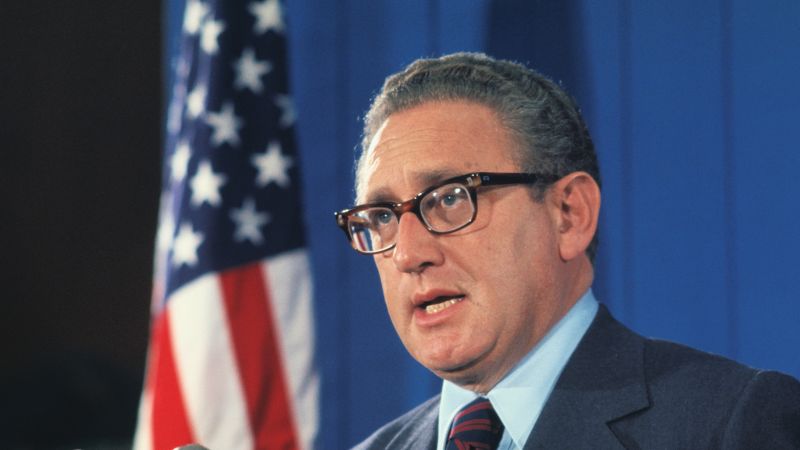Henry Kissinger, who died at 100 on Wednesday, achieved wealth, power and worldwide fame as the master of geopolitical chess who guided US foreign policy. The former secretary of state and national security adviser did it by claiming to protect American interests to contain communism while violating American values, which are supposed to respect life and liberty.
There are serious people who argue he should have been tried as a war criminal for the blood spilled by his efforts, largely hidden at the time from the public, via bombing campaigns in Southeast Asia, helping overthrow a democratically elected government in Chile and supporting genocidal dictators in Indonesia and Pakistan.
Those deadly operations and anti-democratic efforts were undertaken because Kissinger argued they served American interests, something historians can debate.
The National Security Archive, a nongovernmental organization at The George Washington University that obtains and publishes declassified US government documents, has its own Kissinger obituary, full of declassified material to remind the public what was done on its behalf and without its knowledge at the time.
Assessing Henry Kissinger’s legacy
There are larger questions about whether Kissinger’s geopolitical chess accomplished anything. Should he have gotten the Nobel Peace Prize for ending the war in Vietnam, or did he and then-President Richard Nixon help…

Leave a Reply